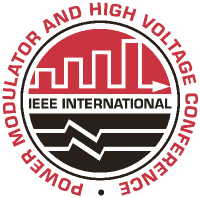Speaker
Mr
Takashi Ishikawa
(Kindai University)
Description
Nitrogen oxides ($NO_{X}$) and particulate matter (PM) emitted from diesel exhaust causes awfully problem to the atmosphere. Current processing techniques are using the catalyst with a precious metal. By contrast, treatment of diesel exhaust using non-thermal plasma (NTP) might reduce the amount of the catalyst that the system uses. Topic of diesel exhaust treatment by NTP has been investigated by many research institutions to date. Nevertheless, it's not realized yet in motor vehicle pollution sources. Nitric oxide (NO) accounts for a large percentage of $NO_{X}$ in exhaust. Fluctuation of the engine load, it significantly changes both NO and PM concentrations. Therefore, the system using NTP must cope with abruptly change of concentration. We investigated the effects of increasing the repetition rate under the same energy density in simulated gas. The temperature of gas included room temperature in order to simulate the time of starting the engine. The NTP was generated by applying a high voltage pulsed power supply to a dielectric barrier discharge (DBD) reactor. In this work, power supply having the magnetic pulse compression (MPC) is used to obtain a pulsed high voltage. Charge and discharge controller is improved for the purposes of experiment and became high-speed response. The experimental results show that the dispersion of NO removal rate is suppressed by increasing the repetition rate under the same energy density. The stability of NO removal rate by NTP contribute to the stability of the whole system.
Primary author
Mr
Takashi Ishikawa
(Kindai University)
Co-authors
Mr
Tomohiro Mori
(Kindai University)
Dr
Tsuyoshi Kiyan
(Kindai University)
Peer reviewing
Paper
Paper files:
